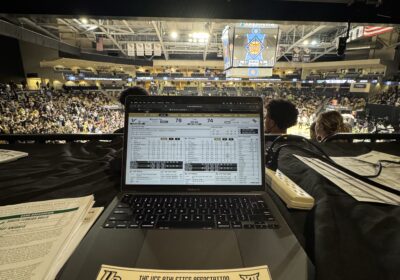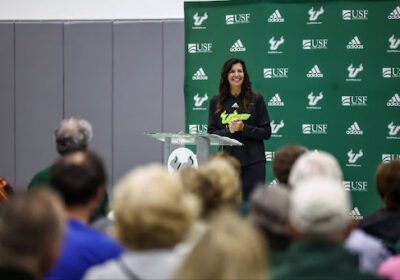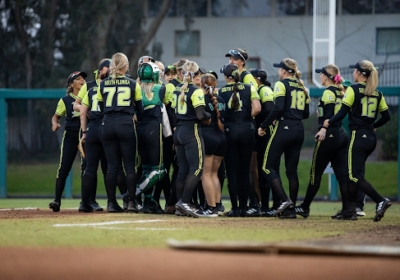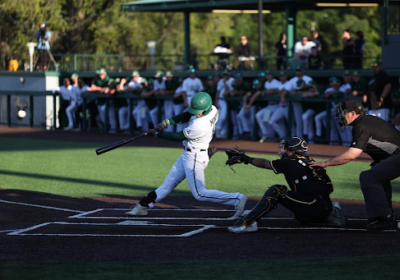New expectations for Bulls in 2019-20
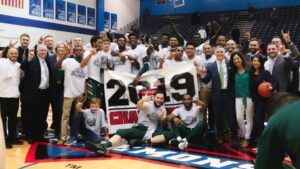
There’s something different surrounding the Bulls as the 2019-20 season begins.
And it’s something that hasn’t been around the program since the early part of a decade that’s now in its final months.
Expectations.
Considering the Bulls are coming off a season where they set a program record for number of wins (24) and won the school’s first postseason championship since the 1990 Sun Belt Tournament, there are good reasons to have them.
But with those expectations may come some difficulties.
“We’re going to be faced with some challenges this year that we’ve never encountered before,” coach Brian Gregory said. “If we lost a game [last season], I’m not sure anybody was like, ‘Whoa, what’s going on?’”
That was then, when USF was coming off a 10-win 2017-18 season and hadn’t qualified for the postseason since the 2012 NCAA Tournament.
Now, as reigning College Basketball Invitational (CBI) champions, fans will be talking about every win — and every loss — like never before.
“There’ll be different things being said,” Gregory said. “You’ve got a lot of different platforms that if you lose a game or you don’t play well, that there’s negative comments can come on. It’s really important that guys understand that. … You’ve got to stay humble when things are going well, and you’ve got to really kind of hunker down and hit the mattresses if things aren’t going well.”
Veteran leadership
When it’s time to “hunker down and hit the mattresses,” the Bulls will have to rely on veteran leadership to weather the storm, according to Gregory.
Fortunately, they have plenty of that — to a degree.
USF returns all five starters from last year’s CBI-winning team, only adding two true freshmen — guard Jamir Chaplin and forward B.J. Mack. But, while mostly everyone is back, it’s still a relatively young group.
“When I say veteran, it’s interesting, because it’s still only two seniors [forward Antun Maricevic and guard Laquincy Rideau],” Gregory said, “but David [Collins] and [Justin Brown], it’s like those guys have been here for 10 years already, and they’re only juniors, but they’ve played so many minutes.
“So we have a lot of playing-time experience for us. But with only two seniors, it’s still unique.”
It wasn’t all sunshine and roses in Collins and Brown’s freshman year. In fact, considering the 3-15 AAC record the Bulls put up in 2017-18, it would have been easy to be pessimistic, according to Brown.
“To be honest, as time progressed and things were going the way they were my freshman year, there were a lot of times you could be negative and look down on everything,” Brown said. “But the thing about us is we always just look into the future.
“So once last year came around, it was just everything in the past is in the past.”
Because of the veteran presence, practice has been a lot smoother heading into this season than it was in Gregory’s first two years. Instead of taking time to explain things, the Bulls have been able to spend practice time actually playing basketball.
“We’ve done a lot more playing in practice, where we’re able to review some stuff and then just go out there and compete within that segment — be it offense, defense, special teams, whatever the case might be,” Gregory said. “Where over the last two years, there was maybe a lot more walking through stuff and showing them and explaining why. They know how to do it, they know the why — now, we just have to get better at it. And sometimes the best way to do that is in live action.”
A better schedule
Despite the program record 24 wins last season, USF’s schedule was pretty weak. The Bulls’ strength of schedule was ranked 128th in Division I by CBS Sports at the end of the season.
It’s hard to argue that USF’s schedule isn’t better this season.
The Bulls are set to face no fewer than seven postseason teams in nonconference play alone. Depending on how things shake out during USF’s trip to the Cayman Islands the week of Thanksgiving, that total may be as many as nine before AAC play even begins.
“We talked about how important it was to build a great nonconference schedule,” Gregory said. “There’s two areas you have to hit to build a nonconference schedule that puts you in position to play in the postseason. … You have to play some really high-level Quadrant 1 teams, and then the one-way games — the single games that you play at home — have to be against quality opponents.”
Of the seven guaranteed postseason opponents, three appeared in the NCAA Tournament and two in the NIT. It’s a position the Bulls had to put themselves in to have any shot at a postseason birth, according to Gregory.
“You want to put yourself in a position where heading into conference play, if you take care of things and you continue to develop,” Gregory said, “you’re talked about as a team that can make it to postseason.”
NCAA.com analyst Andy Katz listed USF as one of his “First Four Out” teams in his mock preseason bracket in September, meaning the Bulls would just barely miss out on the tournament. Meanwhile, some pundits even have the Bulls as a dark-horse NCAA Tournament team.
“We’re maybe years in advance of where we thought we’d be, that’s where we’re at right now,” Gregory said. “We had to kind of change it, the philosophy heading into this year.”
Keep it all in perspective this year
With high expectations coming into this season, it’s important to remember that the program is only two seasons removed from arguably its darkest days. There’s still hard work to be done, according to Gregory.
“We can’t forget where we were and how we got here. That’s the biggest thing,” Gregory said. “It’s a temptation when you start getting a little fat and sassy a little bit if you think you’ve arrived.
“We have not arrived. Have we made great strides? Is there some excitement around the program? No question about it. … But we’ve still got some steps to go, and we’re at a point right now where the steps have to be made in wins and losses.
“You also have to look at the history of the program when you look at how long it’s going to take to build something as well. I think someone told me we have three times as many 20-loss seasons as we have 20-win seasons. So you don’t just snap your finger and all of a sudden, you’re in the NCAA Tournament and advancing and winning 25 games every year.”
Regardless of how this season turns out, whether it’s another 20-win season or not, it’s all about getting better. That will determine whether the 2019-20 season is a success in Gregory’s eyes.
“We want to take another step as a program,” Gregory said. “I’m not sure there’s a certain number [of wins] that goes with that. I’ll know by looking at how we respond. … We evaluate on a daily basis, we really do, because where we [were] at, there was no sense of trying to look forward more than one day.
“We’ve just got to keep taking care of today.”

